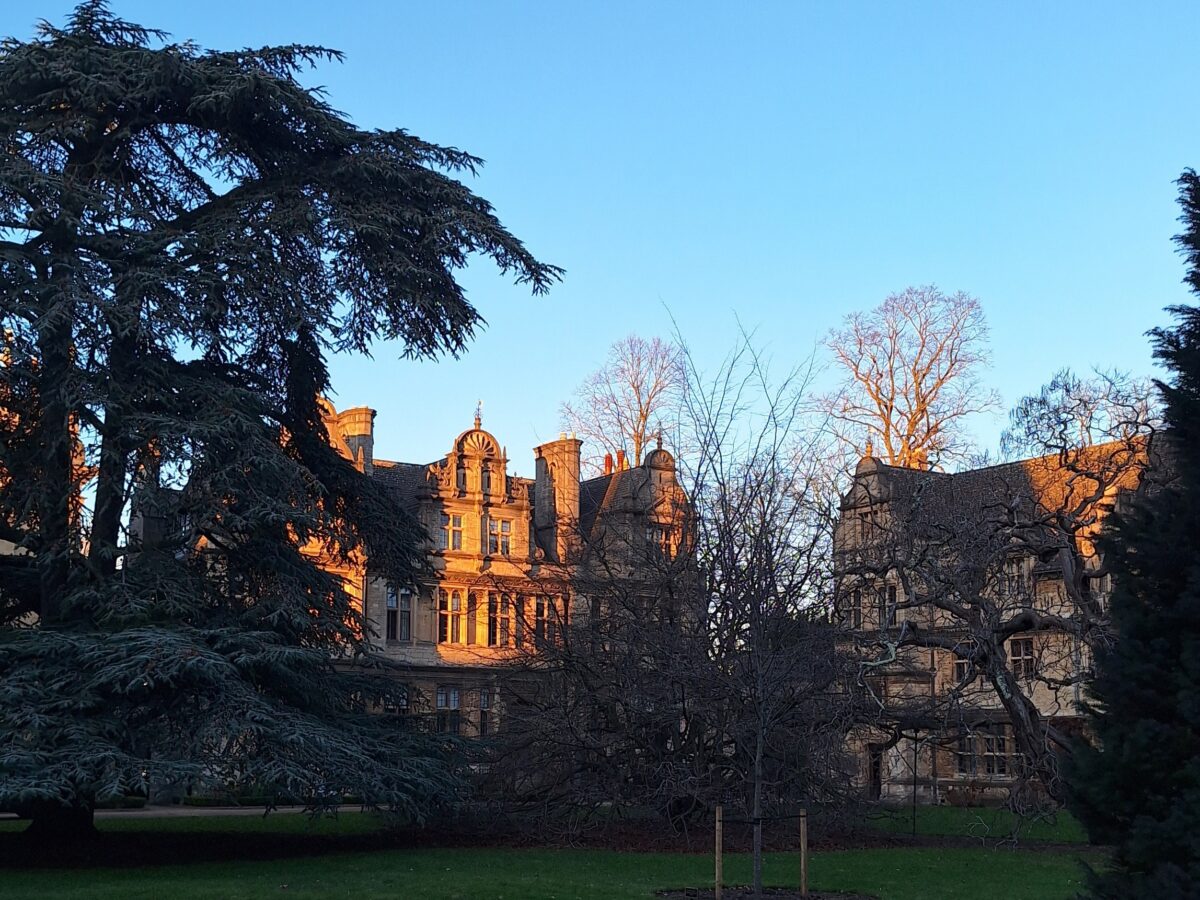Oxford. What a strange, little city. But it is also a city that I have had the honour of calling home since October last year. In between the busy patches of Oxford life, I find myself thinking about what this city means to me. Anyone who knows me would know that I have a fascination with places and their meaning (see: my A-Level English Literature coursework, where I waxed lyrical about the importance of places in immigration fiction for nearly 3000 unfortunate words). This means I’ve had many thoughts on the ideas represented by such a highly romanticised and cinematically beautiful city like Oxford. Thus, I present to you, in what will hopefully be less than 3000 words, how I find Oxford to stand for one principal abstraction: distance.
The so-called ‘Oxford bubble’ has been likely thought about by anyone who’s had the privilege of studying here. From the tight-knit college community, to the exclusive and all-consuming Oxford lingo, it’s easy for life to condense into a 500m radius. You wouldn’t believe, after eight weeks at this university, that life exists beyond the SU, Union hacks, collections, bops, formals, and Park End. As one of my friends from home reminded me the other day, “The word JCR means nothing to me.” It is all indeed quite abnormal and distant from the real world.
Is there a benefit to this? The intensive immersion of the University of Oxford demands of its participants a focus and commitment of unique rigour. Writer Hilaire Belloc said of Oxford that “there are few greater temptations on earth than to stay permanently at Oxford in meditation, and to read all the books in the Bodleian.” Whilst I would not go as far as to describe my law degree as akin to meditation, I can understand the appeal. There is a mysterious beauty to dedicating oneself purely to the pursuit of academia, intellectual understanding, and questions of infinite existentialism. In a city like Oxford, with its aesthetic beauty, numerous libraries, and insular quality making it so distant from the outside world, it can indeed be a haven for learning and study of the subjects we all professed to love so much in our personal statements. Maybe the distance isn’t all so bad.
However, this feels to be a very narrow take on the Oxford experience. With the numerous mental health struggles that come with studying at this university, alongside the high cost of living, distance from the real world is a privilege afforded to very few. The dire state an essay crisis can leave you in is not quite as suited to Pinterest as the golden dreaming spires. The heavy workload can onset various health issues which fail to fit into the Romantic’s view of Oxford as a place purely for solitude, study, and escapism.
There’s also the matter of the political distance of Oxford from the real world. When moving here I was expecting, due to the proximity of Oxford to London and its role in producing key political actors, that I would feel more connected to politics than ever before. For such an avid follower of the news (and shamefully an avid X user too) I hoped coming to Oxford would allow me to immerse myself in politics even further. But what I have experienced is truly incongruent with this expectation.
As Matthew Parris described in his review of Chums by Simon Kuper, there appears to be a “smirking Oxford insinuation that politics is all just a game.” To me, and anyone interested in politics in a serious way, it is not and can never be a game if the body politic is to have any health. However, the attitude that political issues are a game or a purely theoretical exercise with absolutely no real-world consequences pervades the Oxford political culture. I have experienced this when meeting some students of PPE (which may be due more to the way the course is taught than the individuals themselves) as well as in the debates held by Oxford Union hacks. This attitude must come, at least in part, from distance. There is no denying (despite steps made to improve access) that the University remains deeply privileged in comparison to the rest of the country. For highly privileged individuals, it seems a natural jump in logic to treat politics as a realm filled with issues that simply do not affect you. Maybe I’m just looking in the wrong places or maybe this school of thought imposes itself on you even if you do not seek it within this city. Regardless, it seems distance from the outside world makes the political discourse at Oxford suffer for the worse.
The train journey away from Oxford at the start of the vac is bittersweet for me. It represents a departure from the world I’ve come to love: the friends I can call family and the degree that excites me just as much as it scares me. Yet it’s also a much-needed jolt back into the swing of the world around me: a reminder that the outside world continues on during those eight weeks without a single care for the insular Oxford experience. I’m reminded of this quote from Babel, a beautiful book by R.F. Kuang. It relates an old and fantastical version of Oxford that also captures the feelings of many contemporary Oxford students. She writes of the characters that
They became what they’d aspired to be since their first year – aloof, brilliant, and fatigued to the bone. They were miserable. They slept and ate too little, read too much, and fell completely out of touch with matters outside Oxford or Babel. They ignored the life of the world; they lived only the life of the mind. They adored it.
My love for this city will always be punctured by the pain of its harmful distance and, in the end, these two conflicting emotions are forced to coincide within me: such is the inherently contradictory nature of this university.

